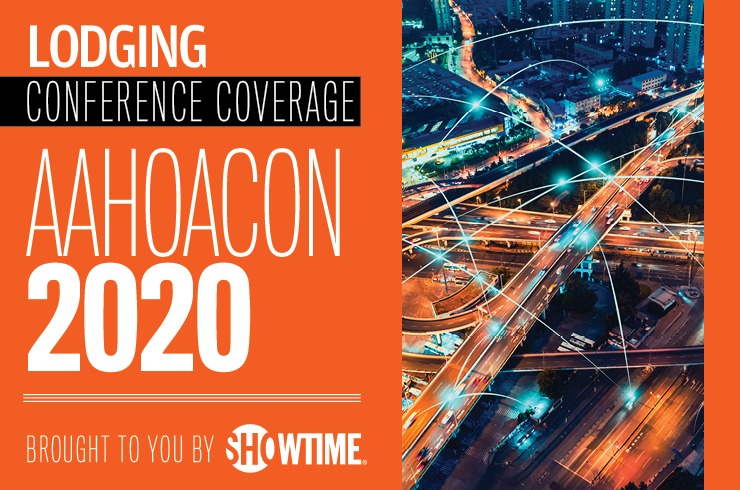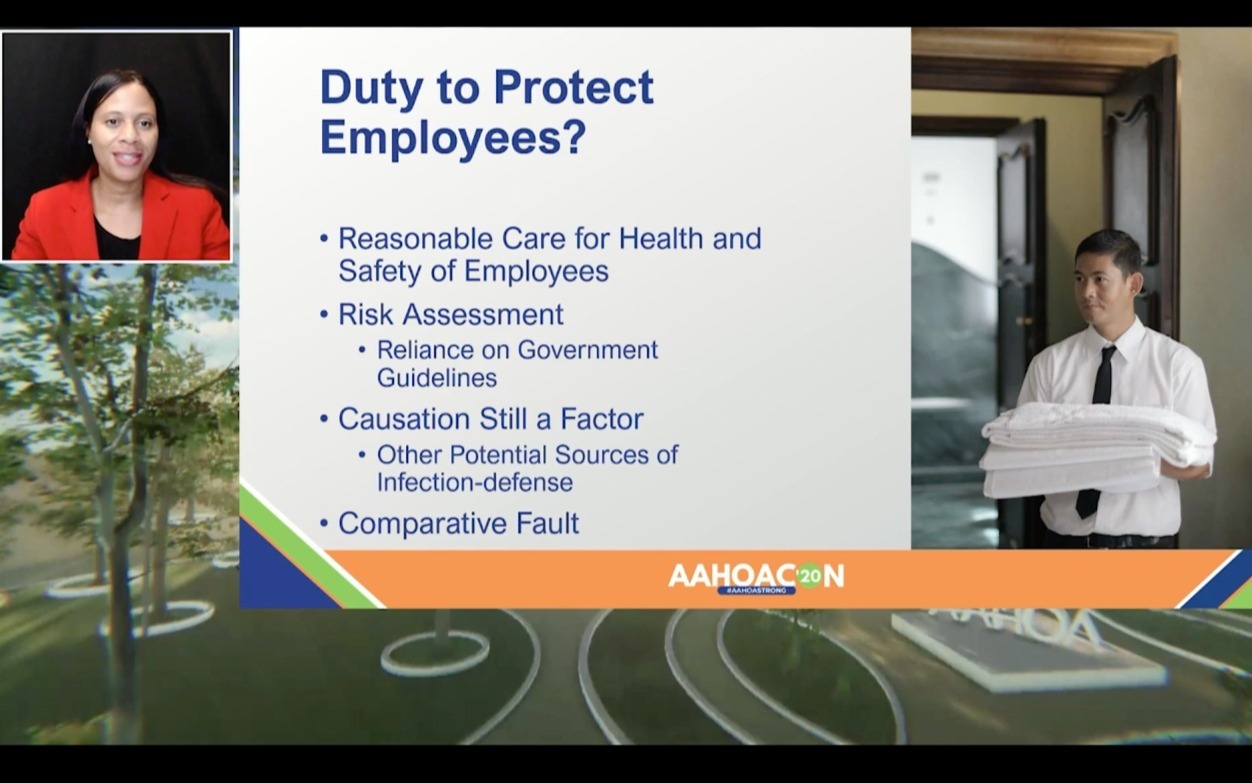
The COVID-19 pandemic has been absolutely devastating for hoteliers, leading to industry-wide challenges in pretty much every facet of the hotel business. Some of these challenges are urgent, like keeping hotel team members and guests safe and healthy, while others loom on the horizon. One of those looming issues was spotlighted yesterday during the 2020 AAHOA Virtual Convention & Trade Show—the possibility that COVID-19 will lead to a wave of lawsuits against hotel owners and their properties.
To speak on this issue, AAHOA tapped Jennifer Miller, a partner at Hamilton, Miller & Birthisel, LLP. Her presentation, “COVID-19 Legal Concerns: What’s Top of Mind for Hoteliers,” did a deep dive into the legal issues surrounding COVID-19 and what hoteliers can do to mitigate risks as they continue to serve guests at their properties.
Miller began by noting that the lawsuits are definitely coming, it’s only a matter of time. “With coronavirus, we are presented with a new legal frontier. It’s a matter of when, not if, a wave of litigation unfolds against hotels.”
She cited the lawsuits filed against cruise lines after an outbreak of norovirus as precedent and noted that she’s already seen some claims filed against hotels and cruise lines for COVID-19 exposures. “In large part, the first cases that are being presented are claims of emotional distress,” she described. “These are claims where people are claiming they attended a large event or a large gathering at a hotel for example and now they are fearful they have been exposed to COVID-19.”

Miller added, however, that many of the people filing lawsuits will be facing an uphill battle, as they will have to prove that the hotel did not take reasonable steps to shield them from the virus. She noted that hotels that follow CDC, WHO, hotel industry, and local health and wellness guidelines are better protected from suits. “If a hotel has exercised due care by implementing these policies and procedures and enforcing that folks comply with those policies and procedures, the risks are severely minimized,” she explained.
She did caution that as more becomes known about COVID-19, the more scrupulous hoteliers will have to be to ensure their processes and procedures incorporate that latest best practices. Above all, they should be sure that they’re following their own rules to the “T.” “It is more likely than not that as a hotel owner or operator, you will be judged by your own strict compliance with your own guidelines—more so than anyone else’s guidelines. So, the key here is to ensure we remain diligent in following our own internal guidelines.”
Miller also talked about hoteliers’ duty to provide a “reasonably safe workplace” for their employees. “In the context of COVID, that includes adequate health surveillance, the testing or screening of employees when they come into the workplace… It also includes identification and isolation [of] vulnerable and suspected infected persons from the rest of the workforce. It means provision of suitable personal protective equipment to the employees,” she explained. Miller stressed again that beyond these steps, following local, CDC, WHO, and industry guidelines and best practices is a key component to successfully providing a “reasonably safe workplace.” “A reasonable employer will ensure that it closely monitors advice from government agencies, industry bodies, as well as relevant experts regarding the changing climate of this disease and how to mitigate against those risks,” she said.
She added, “The bottom line is, if you’ve kept abreast of the changing guidelines, kept in compliance with those changing guidelines, and done your best and taken reasonable steps to maintain a reasonable work environment, you should be just fine.”











